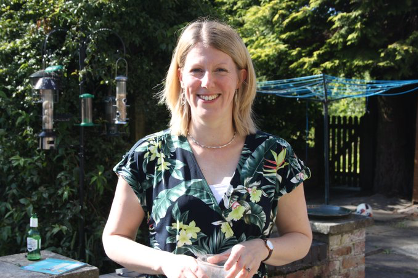Closing date: 17/11/2025
Clinical Research Training Fellowship: Investigating the role of semaglutide (GLP-1 receptor agonist) in the medical management of atypical endometrial hyperplasia and endometrial cancer
Lead Supervisors: Dr Sarah Kitson
Co-Supervisors: Prof. Emma Crosbie, Dr Molly Dore, Dr Aliah Hawari, Prof. David Wedge
Applications Deadline: 12:00pm Monday 17th November 2025
Interviews: Week commencing 12th January 2026
Start date: September 2026
Project Keywords: Endometrial cancer, GLP-1 receptor agonist, treatments
Research Opportunity: Clinical Research Training Fellowship leading to the award of PhD
Project Outline
Endometrial cancer (EC) is the fourth commonest female cancer in the UK, with rising rates of obesity increasing both pre- and post-menopausal EC diagnoses. Although surgery is frequently curative, it can cause significant morbidity, particularly for individuals with obesity. It also results in permanent infertility in young women. EC and its precursor, atypical endometrial hyperplasia (AEH), are increasingly treated hormonally when surgery is not advised. Complete response rates can reach 86% with the Mirena coil but are significantly lower if obesity or established cancer are present.
Our group showed that concurrent weight loss (≥10% over 12 months) alongside Mirena coil treatment improved response rates, but that bariatric surgery was often needed to achieve weight loss of this magnitude. GLP-1 receptor agonists (GLP-1RAs) are an effective alternative to bariatric surgery. Cell line and mouse studies suggest these drugs may also exert direct effects on endometrial cancer cells, affecting proliferation and apoptosis. Despite this, there have been no clinical trials of GLP-1RAs in women with EC.
This project aims to determine whether an effectiveness randomised controlled trial (RCT) of semaglutide as an adjunct to the Mirena coil during AEH/EC treatment is feasible and whether GLP-1RAs have additional direct effects on the endometrium. It involves undertaking a feasibility RCT of semaglutide/placebo during the medical management of 30 women with AEH/EC, reporting on recruitment and intervention delivery rates and drop-out over the 12-month study period.
Secondary outcomes include the effect of semaglutide on weight loss, pathological response rates and tumour proliferation. Questionnaires and in-depth interviews with trial (non-)participants will explore facilitators and barriers to engagement and acceptability of the study design. Immunohistochemistry, metabolomic analysis and transcriptomic profiling using RNA-sequencing of specimens collected during the clinical trial will explore the systemic and endometrial-specific effects of semaglutide for the first time in human samples.
Applications for this project are now open. Please complete your application on The University of Manchester website.
About Dr Sarah Kitson (project Lead Supervisor)
Dr Sarah Kitson is affiliated with the Division of Cancer Sciences, University of Manchester in Manchester, UK. Dr Kitson is the Guest Editor of this Special Issue “Recent Advances in Endometrial Cancer Prevention, Early Diagnosis and Treatment” in MDPI. Dr Kitson’s research interests mainly focus on endometrial cancer, surgery; prevention; survivorship; and biomarkers.

Key information
Before submitting an application, please ensure you have read the information below about the funding arrangements and eligibility for our Clinical Research Training Fellowships.
We also encourage you to get in contact with the lead supervisor to discuss the project and any particulars.
Further information is available on the Clinical Research Training Fellowships webpage.
The clinical fellowships are usually tenable for three years, although in certain circumstances they may be four years duration. The Fellowship covers:
- running expenses,
- an appropriate salary in line with the applicant’s current salary and grade
- full coverage of University PhD fees at the UK/home fee rate.
International Candidates
The University of Manchester aims to support the most outstanding applicants from outside the UK.
We are able to offer a limited number of bursaries to high-performing EU and international candidates, covering PhD fees only. Bursaries do not include financial support for visa/health surcharges.
We assess each EU and international candidate’s suitability for a bursary at the application and interview stages.
You must be a post-registration clinician, and ideally have a specialist post in a related subject, to apply for our Clinical Research Training Fellowships.
Applicants must hold an MBChB degree or an equivalent medical qualification. You should also hold, or be about to obtain, a minimum upper second class (or equivalent) undergraduate degree in a relevant subject. A related master’s degree would be an advantage.
It is generally expected that CRTFs will return to a training programme in the UK upon completion of their research degree.
International applicants (including EU nationals) must ensure they meet the academic eligibility criteria (including English Language) before contacting potential supervisors to express an interest in their project. Eligibility information can be found on the University’s Country Specific information page.
Applications for this programme are now open. Please submit your application on The University of Manchester application portal.
Key dates
- Applications open: Monday 6th October 2025
- Application deadline: 12:00pm Monday 17th November 2025
- Interviews: Week commencing 12th January 2026
- Start date: September 2026
Useful Links
Submit your application
Interested in applying for this opportunity? Submit your application on The University of Manchester application portal.
Clinical Research Training Fellowships
Discover our various opportunities for clinicians looking to undertake a period of PhD training in a cancer-relevant field.
Get in Touch
Contact Dr Yasmin Noori Jenaghard, Postgraduate Programme Manager.
Researcher Stories
Read first-hand experiences of from cancer scientists from across Manchester.
Why Manchester?
Find out why postgraduate students choose to study in Manchester.
A Day in the Life of a Clinical PhD Student
Watch our short video to see what it's like to be a Clinical Research Training Fellow in Manchester.





